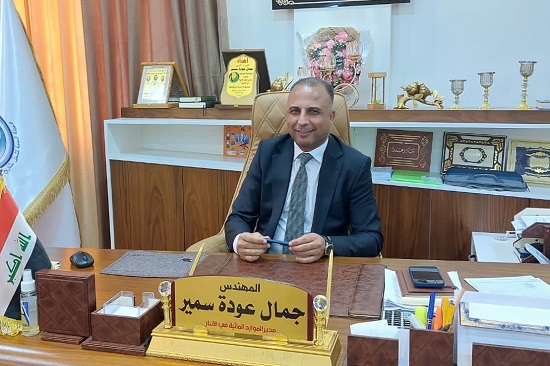| News Details |
Important clarification from the Director of Water Resources in Anbar regarding Habbaniyah Lake
2023-06-24

Commenting on the satellite images of Lake Habbaniyah announced by the Upper Euphrates Basin Developing Centre at University of Anbar, Engineer Jamal Odeh Samir, Director General of Water Resources in Anbar, explained that the Directorate is continuously following up on the water and environmental situation of the lake with tests and tests of samples of the lake's water to determine the levels of pollution in it, adding that during the first three months of this year, as a result of the wave of rain and torrents, there were releases to Habbaniyah Lake from Al-Warar water-regulator up in some Sometimes 10 cubic meters per second, which contributed a lot to reducing pollution levels.
With the receding wave of rain and the decline in water imports in the Euphrates River, and according to the central plan for water resources management, there are no longer releases to the lake because the priority is to secure sufficient discharges in the column of the Euphrates River to provide the water needs of the largest number of residents and cities between Haditha and Ramadi and strengthen the river pillar between Falluja and the Middle Euphrates through water releases from Lake Therthar, which water resources have succeeded in significantly.
He pointed to the difficulty of releasing discharges from Habbaniyah Lake to the Euphrates River through the water-regulator of Sin Ethibban, due to the low water levels at the front of this regulator than the operating levels at the back of the regulator, and it is practically not possible to use floating pumps because the levels of salinity and other indicators in the lake are much higher than in the Euphrates River, so this can lead to the quality of the Euphrates River water being significantly affected at the present time.
For his part, the Director of Water Resources expressed his full readiness to cooperate with researchers, university professors and research centres to conduct studies and discuss proposed solutions to develop the water resources management system in the governorate, reduce and address pollution levels in Habbaniyah Lake, and form joint teams to monitor them and conduct periodic measurements.
#Upper_Euphrates_Basin_Developing_Center








